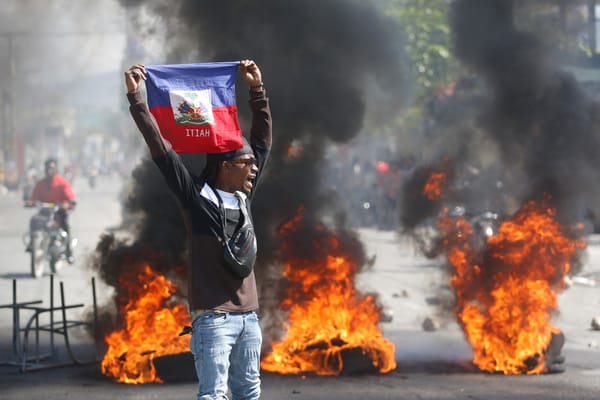On March 2, armed gangs seized control of Haiti’s prisons and released an estimated 4,000 inmates, including gang leaders, onto the streets. The following day, the gangs expanded their assault against critical infrastructure, including ports and Haiti’s principal airport in the capital of Port-au-Prince. Gangs and armored vehicles exchanged gunfire on the tarmac as airport workers attempted to flee to safety.
As if the United States weren’t dealing with enough international crises, it now faces the prospect of total state collapse in a Caribbean nation at its doorstep—a fate brought on, in part, by Washington’s own malfeasance in recent decades.
In the midst of an ongoing state of emergency first declared on March 3, Haiti’s most powerful gangs have called for the resignation of Prime Minister Ariel Henry in favor of a warlord triumvirate composed of the gang leader known as BBQ, former rebel leader Guy Phillipe, and opposition leader Moïse Jean Charles. With virtually all of Haiti’s elected officials in exile or with their terms expired, Henry and the Haitian National Police represent what little remains of the Haitian state since the 2021 assassination of President Jovenel Moïse.
